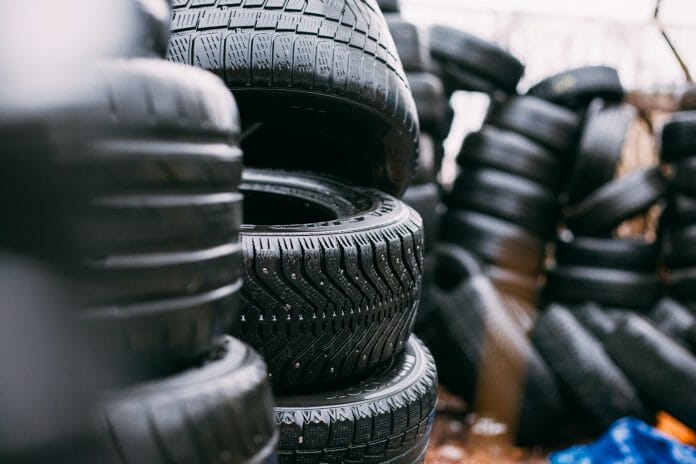The impact of the Coronavirus was felt across multiple industries and some of the more impacted ones included the tourism industry. International borders were locked and in most countries, even domestic travelling was banned for months.
The closure of borders translated into the lack of mobility and the impact of it affected the automotive industry.
The first three month Movement Control Order that was implemented last March saw Malaysia record 141 sales of cars in April 2020, recording a 99.7 percent decline. The lockdown also had a spillover impact on the demand for tyres.
“It was evident that business for all sectors were very much impacted by the pandemic, and the tyre industry was not spared. However, we saw a rebound in H2 2020 as Malaysians were eager to travel once again after lifting of travel restrictions,” says Oliver Biggart, Managing Director of Michelin Malaysia, Singapore and Brunei.
Now that the second wave of lockdown is beginning to ease up to allow for short-distance travel within the state, Michelin is confident the automotive industry will continue to improve in the coming months.
While a third lockdown has been imposed, it has not been as severe as the initial two. Malaysians are still allowed to drive to work and to buy the necessities.
“Motion and mobility are highly linked to our social interactions, our sense of enjoyment and adventure, as well as the transport of people and goods.My first observation and learning from this pandemic is that people desire and require mobility, now more than ever,” he says.
His second outlook for the short to medium term ahead is that the pandemic will realign the balance for mass and private transportation.
Biggart has also identified two key trends that have come out from the industry during the pandemic. One being the increase in digitalisation amongst the manufacturer-dealer interactions and transactions, and also interactions involving dealers and consumers.
The other, he says, is the transition towards more local manufacturing links which not only allows us to remain agile but is also more sustainable for the planet.
Over the past years, the Malaysian market has remained a strong one. One of the key trends observed is in the way Malaysians consumed tyres.
According to Michelin, consumers are focusing more and more on quality, safety and performance when making their purchase decisions. Prior to the pandemic, consumers have also been changing the way they purchase their tyres and putting more value on the overall consumer experience.
“Over the past years, we observe the emergence of fast-fitters like Tyreplus that offer a best of class service experience with great prices along with many other services like oil or battery changes,” he says.
Biggart also highlights that the company has seen a shift in consumer behaviour where customers are more wary of purchasing items in a traditional in-person sense, oftentimes prioritising service, over the price point itself.
“With consumers opting for a digital purchasing journey and service, this has given us more opportunities to further our e-commerce strategy that we initially planned for in the beginning of 2020,” he says.
The pandemic has also brought on many unique challenges for Michelin. Like many other organisations, Biggart and his team have had to reimagine their daily operations to be online and with no-contact.
In Malaysia, the company saw an increase in digitalisation amongst the manufacturer-dealer interactions and transactions, and also interactions involving dealers and consumers. There is also a transition towards more local manufacturing links, in which Biggart says not only allows them to remain agile but is also more sustainable for the planet.
Championing Sustainable Mobility
Michelin has begun rolling out many new environmental initiatives that aim to cut their carbon emissions to zero by 2050. “We are beginning with the research and development of a 100% sustainable tyre in the next 10 years and recently, we partnered with NEOLINE for maritime transportation that will better decarbonise our logistics operations across the Atlantic,” he says.
On a local level, they are also multiplying awareness campaigns within their internal team and auditing the carbon footprint of the Malaysian office as well their logistics operations in an effort to reduce it.
Michelin is also developing the UPTIS (Unique Puncture-Proof Tyre System) that provides an airless mobility solution for passenger vehicles, and the VISION Concept tyres – made from biosourced and biodegradable materials.
What’s next?
Besides introducing their new brand campaign, “Motion for Life”, Michelin has a range of products lined up for 2021. The company is looking into reinforcing their offerings in various segments and this includes new products for electrical vehicles.
“We are also focusing strongly on our sustainability goals for the coming years and we are looking forward to our initiatives that aim to cut our carbon emissions to zero by 2050,” he says.
“The main challenge we would see throughout the next year will be recovering the demand for tyres as the pandemic continues. As of right now, we have little visibility on how the situation will evolve over the next few months. However, we remain agile in our recovery approach and will continue shifting towards e-commerce solutions for our dealers as well as customers, so they are able to maintain a safe purchasing experience,” Biggart concludes.









